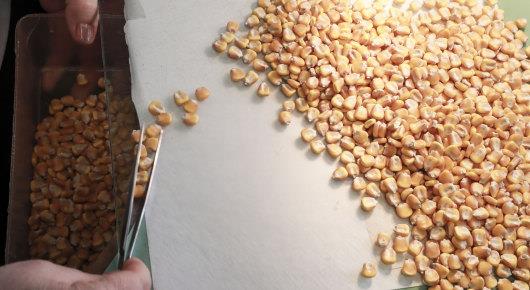Moldova to protect and develop plant genetic resources for food, agriculture

Moldova now has a national programme for protecting and developing its genetic resources for food and agriculture. It also has the technical capacity and equipment to run the programme, thanks to a two-year FAO project that concludes with a final workshop this week.
Entitled, “Support to the development of a National Programme for Plant Genetic Resources for Food and Agriculture in Moldova," the US$ 300 000 FAO project ran from 2015 to 2017.
“Over the long term,” said Vasile Șarban of Moldova’s Ministry of Agriculture, Rural Development and Environment, “the national programme is expected to have a beneficial impact on national development, food security, sustainable agriculture and the preservation of agricultural biodiversity, by improving the effective use of national plant genetic resources in plant breeding and the seed sector.”
Șarban also underlined the importance of FAO’s support – in elaborating the programme document, providing technical equipment, and sharing international knowledge and experience.
Training in areas such as management and planning of national programmes, policy development and analysis was provided under the project for Ministry specialists.
“Adequate training of experts, plant breeders and technicians were crucial activities for the successful implementation of the project,” said Tudor Robu, Assistant FAO Representative to Moldova. He highlighted the importance of involving and providing technical training for all actors concerned with the new National Programme for Plant Genetic Resources for Food and Agriculture.
Short courses for experts, plant breeders and technicians covered topics such as gene bank management and operation, germ plasm conservation, documentation and sustainable use, and general plant-breeding applications. There was also a study tour in Hungary for two specialists from the national Gene Bank of Moldova.
To promote plant-breeding and germ plasm conservation practices that meet international standards, FAO provided modern laboratory tools and equipment for training purposes to laboratories of the Institute of Genetics, Physiology and Plant Protection, which will take responsibility for the national Gene Bank.
The project is one example of the long-standing collaboration between FAO and Moldova. After the 2005 and 2007 droughts that affected the country’s agricultural sector, Moldova received FAO emergency assistance for restoring winter wheat production. This intervention was followed by a second project (2011-2013) on seed sector development with an emphasis on climate change and disaster risk mitigation. During elaboration of the national seed policy document, problems with availability and maintenance of plant genetic resources were identified.
The project concluding this week is part of a broader, concerted effort to achieve Sustainable Development Goal 2: End hunger, achieve food security and improved nutrition, and promote sustainable agriculture.
19 October 2017, Chisinau, Republic of Moldova
